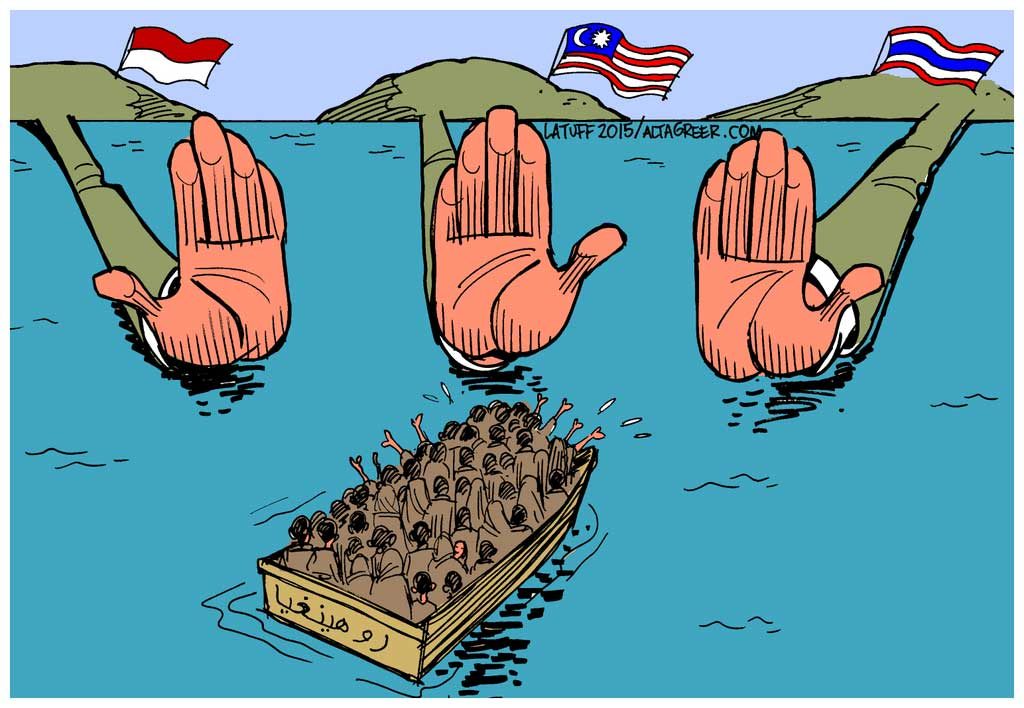
- This event has passed.
(Un)Managing the Refugee Crisis in Southeast Asia?
22 April, 2017 @ 4:30 pm - 6:30 pm
Policies and practices developed by ASEAN member states in managing refugee crisis are mostly marked by their changeable, ad-hoc, and optional characteristics. Since most of them are not signatories to the 1951 Refugee Convention and its 1967 Protocol, any policies and practices that do emerge are not necessarily obligatory and compliance is not guaranteed. Moreover, they tend to endorse the national interests, particularly in terms of domestic security and development, rather than to prioritize the interest and destiny of refugees.
With the major crisis of Rohingya refugees it has become clear, however, that conventional attitudes should be reassessed. Since the ending of the Indochinese refugee crisis, almost none of the regional framework or collective instrument that had been used tto resolve the situation then has been applied. ASEAN has only focused on providing immediate and temporary relief and calling Special or Ministerial Meetings to discuss the Rohingya refugee crisis, instead of proposing preventive, durable and innovative solutions. Most of the ASEAN countries approach the issue under the perspectives of rights of a child and human trafficking, instead of under the perspective of rights of refugees and the stateless community. The absence of an operational regional framework implies that the region is poorly equipped to effectively address the refugee crisis in the region. Yet, if no legal framework for protecting refugees in ASEAN is developed the human suffering of refugees will not be alleviated and the refugee crisis will continue to affect the region with no end in sight.
These and related concerns are discussed in the book Managing Refugee Crisis in Southeast Asia which has been recently launched at the Habibie Center in Jakarta. As the issue is regional in nature and requires regional awareness and responses, SEA Junction has taken the initiative to organize a book discussion on 22 April at 4.30 PM. This is the first of a series of events on movements of people in Southeast Asia entitled ASEAN People in Flux that is organized by SEA Junction in collaboration with the Heinrich Boll Stiftung Southeast Asia.
The event program consists of three parts: presentation of the book and panel discussion with one of the book author and Team Leader of Humanitarian Refugee Program at the Habibie Center Mohammad Hasan Ansori, and migration expert at the Asian Research Center for Migration (ARCM) of Chulalongkorn University, Rachada Jayagupta; screening and discussion of the documentary Bodies for Sales with filmmaker Mahi Ramakrishnan; visit of the exhibition DISPLACED: The Politics of Ethnicity and Religion in the Art and discussion with the author Jakkai Siributr about his critical outlook on pressing religious and ethnic tensions in Thailand and Southeast Asia, including on the Rohingya refugees.
For more information email southeastasiajuntion@gmail.com

Organizer:
SEA Junction, OUR Venue to Connect on Southeast Asia (see https://seajunction.org) SEA Junction aims to foster understanding and appreciation of Southeast Asia in all its socio-cultural dimensions –from arts and lifestyles to economy and development. Conveniently located at Room 408 of the Bangkok Arts and Culture Centre or BACC (across MBK, BTS National Stadium) SEA junction facilitates public access to knowledge resources and exchanges among students, practitioners and Southeast Asia lovers. For more information see seajunction.org and join the Facebook group https://www.facebook.com/groups/1693055870976440/
Heinrich Böll Stiftung Southeast Asia ((https://th.boell.org/) is the regional office of the German Green Political Party Foundation and conducts and supports civic educational activities in Southeast Asia



